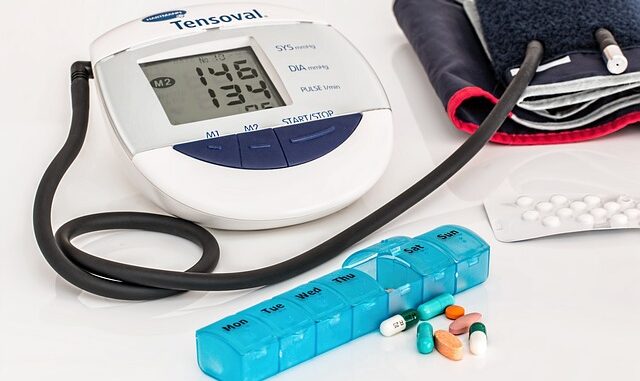
Summary
This article explores the transformative impact of generative AI and precision medicine on healthcare in 2025, focusing on personalized treatments, streamlined workflows, and improved patient care. From AI-powered diagnostics to virtual nursing assistants, the integration of AI is poised to revolutionize the healthcare landscape, leading to increased efficiency, accessibility, and cost reduction. The synergy of AI and precision medicine heralds a future of personalized healthcare, empowering both medical professionals and patients with data-driven insights for enhanced diagnostics, treatment, and overall well-being.
Main Story
Okay, so, let’s talk about the future of healthcare, because it’s pretty wild. We’re seeing generative AI and precision medicine really start to merge, and by 2025? I think it’s going to look totally different. We’re talking personalized, efficient, and way more accessible healthcare for everyone, potentially.
Generative AI: More Than Just Chatbots
Generative AI is going to revolutionize healthcare on so many levels. First, think about doctors and nurses, they’re swamped, right? AI can automate a ton of admin stuff – data entry, transcriptions, even sifting through EHRs. And because AI is good at this, this frees up doctors to actually, you know, see patients. And that’s important, because physician burnout is a real problem.
Plus, we are seeing specialized AI models emerge for things like radiology and pathology. That said, it will lead to quicker, more accurate diagnoses, and streamlined workflows for the entire team. I mean, think of the possibilities!
But it’s not just for the providers. It’s for us as patients, too. For example, AI-powered virtual nursing assistants can provide immediate support and information. And for mental health, AI-driven therapies, can offer a first line of defense, if you will. This increases accessibility and patient engagement, which is something we’ve needed for a long time. I used one of those mental health apps when I was feeling down a few months ago, and honestly, it helped more than I thought it would.
Don’t forget virtual health coaches. They’re popping up everywhere, offering personalized guidance on everything from wellness to aging in place, even chronic diseases like heart failure and diabetes. It’s like having a 24/7 health buddy.
Precision Medicine: Treatments Tailored Just for You
Precision medicine is already gaining ground, but AI is supercharging it. It’s not just about treating diseases anymore; it’s about preventing them. This is where its starting to get really interesting.
Digital pathology is booming, enabling rapid biomarker analysis. We are seeing results in minutes versus weeks. This quick turnaround is essential for effective treatments. And, with AI crunching multi-omics data – genetics, metabolomics, proteomics – we’re getting insights that lead to truly tailored treatments. Think about that, treatments designed specifically for you.
And there’s more. By analyzing vast datasets, even things like microbiome and vocal biomarkers, AI can predict individual risks for diseases like cardiovascular disease, cancer, and even dementia. The fact is that it’s moving away from the whole “one-size-fits-all” approach, and towards personalized prevention.
Imagine This Scenario…
Picture this: someone with persistent chest pain. Instead of the usual tests and treatments, AI analyzes their genetic profile, medical history, and even data from their wearable devices. From this, they can identify the most effective, personalized treatment. This is what I’m talking about when I say “precision medicine 2.0”. It’s a game changer.
But It’s Not All Sunshine and Roses
Of course, there are challenges. We have to ensure data privacy and security. Also, we need to address algorithmic bias, since that could be really bad. And fostering trust is key; providers and patients need to trust the AI. It won’t work otherwise. Plus, regulations need to keep up with the pace of technology to ensure everything is done ethically. We need to think about these things, or we’re going to have problems down the road.
So, What’s the Big Picture?
The convergence of AI and precision medicine is creating this new world of personalized healthcare. I think it’s exciting. AI-powered diagnostics, virtual assistants, personalized treatment plans, and predictive analytics are changing the way we approach our health. I mean, in the future it can empower us to really take control of our well-being. As these technologies continue to evolve, who knows what’s next? But it’s safe to say healthcare will be more proactive, predictive, and precisely tailored to your individual needs.


AI-powered diagnostics are nifty until they misdiagnose you with a rare Martian disease only curable by space kale. Then who are you going to sue, SkynetMD? Just asking for a friend… from Mars.
Haha, love the Martian disease scenario! It highlights a real concern: accountability. That’s why clear regulations and ethical frameworks for AI in healthcare are so vital. We need to ensure responsible development and deployment, so misdiagnosis doesn’t lead to intergalactic lawsuits! Thanks for the comment.
Editor: MedTechNews.Uk
Thank you to our Sponsor Esdebe – https://esdebe.com
AI crunching multi-omics data to predict diseases? So, if my smartwatch detects a slightly elevated heart rate, will I be bombarded with targeted ads for funeral homes? Just curious how “personalized prevention” translates to my inbox.
That’s a great point! The potential for targeted advertising based on health data is definitely a concern. It highlights the importance of data privacy regulations and user control over how their information is used. Perhaps we’ll see options to opt-out of data sharing for advertising purposes or even decentralized health data solutions.
Editor: MedTechNews.Uk
Thank you to our Sponsor Esdebe – https://esdebe.com